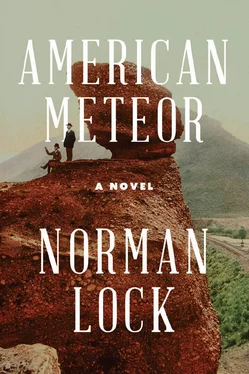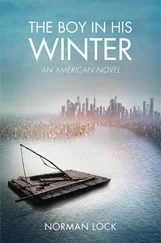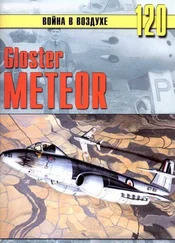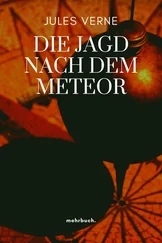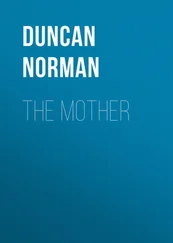“What do you think of that?” I asked Chen, my anger flaring like a ribbon of magnesium once again. It may be common practice to drown unwanted cats and dogs at birth, but it’s a cruel one, Jay.
“I have seen infant girls put into the river to drown,” Chen said stoically.
I didn’t like his attitude — and don’t tell me human life is cheap in China, damn it! It’s the same here. So maybe I tend to be self-righteous and too full of zeal. A man can’t help what he is or doing what he must. Anyway, when I read in the paper how Custer was getting ready to march into the Black Hills, my days of idleness were at an end.
Fort Abraham Lincoln, Dakota Territory, July 1, 1874
When I first laid eye on General Custer, he was trimming his yellow mustache with the finicky attention of a French duke or an actor. I stood in the doorway, regarding his face in the ornate mirror he held in one hand while he snipped decisively with a silver scissors held in the other. He was considered handsome by many, but in my opinion a foppish vanity and fatuous self-satisfaction, darkened by cruelty and ambition, had made an otherwise ordinary face grotesque. Absorbed in his pruning, he didn’t notice me at first, although he liked to boast that nothing escaped him. I began to worry that he’d suddenly look up and, provoked by being taken by surprise, wither me with his disdain. I’d read enough newspaper accounts of the famous Custer temper to fear his annoyance. Nervous as a weather vane, I was deliberating whether I ought to sneak out of the room, when he discovered me in the little gilded mirror. He caught my eye, and I caught his: We were bound, momentarily, by a single look of mutual fascination — mine tempered by fear, his black with suspicion. I coughed, and the spell broke. He laid the mirror down on his dressing table and turned to me.
“Who in the hell are you?”
“General Custer. ” I began to stammer.
“ I am General Custer, and I’ve never doubted the fact.”
He didn’t need to complete his asservation. His unspoken words hung in the cloying air of the room, whose walls shone with afternoon sun, as if with the reflected glory of the general’s golden hair, dressed with cinnamon-scented oil: “. of my special destiny and greatness, you pint-sized worm.”
I am on the short side — you can see that plainly enough— but I resented being thought of as a worm.
“I’m Stephen Moran,” I said, this time without hesitation. “I’d appreciate the honor of accompanying you as expedition photographer. There’s nothing I’d rather do, sir.”
Of all the people I’ve known, Custer was the least bothered by modesty. He gave himself license to do or say anything that would enlarge his reputation, which he nourished with the care and single-mindedness of a horticulturist intent on producing a gaudier flower. Luckily for me, the general was not camera shy. During the war, he’d gotten himself photographed more often than anybody else in the United States, not excepting Lincoln and Grant. He stared at me awhile, ruminating over my proposition. To be always within range of a camera must have appealed to him.
“Have you ever taken pictures in the wilderness?” he asked. “Or are you one of those parlor snakes who take pictures of ladies and gentlemen posed grandly with a pot of ferns?”
I recounted my experiences at Bear River, in the Wasatch, and on the shore of Utah Lake. I omitted my pusillanimity. They appeared to satisfy him, although he continued to assess my meager frame skeptically. It was then I shrugged the saddlebag from off my shoulder so that he could see my medal. I had decided to wear it in order to trump any objections the general might raise concerning my fitness.
“Come closer,” he said. “Where’d you get that? You didn’t steal it, did you?”
“No, sir. I got it for heroism at Five Forks.”
“Moran. ” he said, shutting his eyes as if to find my history recorded in a dark corner of his mind. “Are you the bugle boy who rode to Springfield on the Lincoln Special?”
“I am, sir.”
He opened his eyes and their light fell on me like a royal pardon.
I’d have congratulated myself on my cunning had I not already discovered in my twenty-five years how easily a megalomaniac could be manipulated.
“Then you’re no parlor snake!” he shouted, slapping his thighs as though he meant to break into a gallop and, mounted on a four-legged stool, ride against all such perfidious men who might, if allowed to flourish, practice their oily seductions on his beloved and desirable wife, Libbie.
He twisted one end of his dandified mustache between his fingertips and broke into an uproarious laugh, which went on far longer than one would expect of a sane man.
I didn’t know whether to guffaw fraternally, applaud his impersonation of a philandering reptile, or look down at my boots in embarrassment. I decided on the last.
His suspicions must have reared again, because he spoke my name sharply: “Moran!”
“Yes, sir?” I said, snapping to attention. I offered him my abjection like a bribe.
“Why do you want to go with Custer into the Black Hills?”
His eyes glittered, and I saw the childish look of a naughty boy who plots the downfall of a burrow of gophers.
“To be at the center of the world.”
The wattage of his gaze increased, a signal that I was to continue.
“General Custer is the hinge and pivot of great events, and where the general is, I want to be also. For a photographer, there’s no better vantage from which to view the nation’s most important era.”
Growing expansive, Custer stretched his buckskin-clad legs, threw his head back, and shook out his golden curls.
“Moran, Custer prides himself on his knowledge of men and his judge of character. And he has made up his mind about you. And when Custer makes up his mind, nothing in heaven or on earth can change it. Do you know why that is?”
“No, sir, I don’t.”
“Because of his unswerving and unshakable belief in himself.”
“What’s in the general’s mind concerning me?” I asked.
“You are a man fitted by experience and temperament to photograph Custer when he seizes the Black Hills in the name of the United States of America.”
“I’m grateful to him — and to you, too, General.”
“Not at all.”
He waggled the fingers of his right hand at me like a king dismissing a retainer. I withdrew from his august presence.
Did I know at Fort Lincoln that I would kill Custer? It’s hard to explain otherwise why I sought him out on the frontier and cajoled him with every ounce of guile my baffled heart could summon to take me with him into the last Indian stronghold on the continent. I wasn’t brave, and I had nothing to prove, either to him or to myself. True, I didn’t have what you would call prospects, but I wouldn’t have risked life and limb in the Black Hills to improve my situation— no, not even for photography, however much I was infatuated with the notion that the world could be subjugated by a wooden box fitted with a lens. Custer had become, for me— rightly or wrongly — a shiny emblem pinned over a national disease that had taken the Indian ponies and buffalo, as well as Little Will, Chen, Fire Briskly Burning, a soused, derelict Indian in Omaha — even my own mother. I suppose you think my mind was unbalanced, Jay; and maybe you’d be right. How could it have been otherwise?
The Black Hills Expedition, July 2–August 30, 1874
The following day, Custer and his 7th Cavalry, along with a hundred wagons, three Gatling guns, and a sixteen-piece band, left Fort Abraham Lincoln for the Black Hills, the holiest place on earth to the Lakota Sioux. They went in search of gold to ease the national crisis aggravated by drought, yellow fever, and a plague of locusts that could eat the clothes off a body and strip the fields of crops and the houses of their paint. The Black Hills belonged to the Lakota, given to them and their posterity by the Fort Laramie Treaty of 1868. White men were forever barred from them. None cared so long as the darkly forested and stony hills were judged worthless for farming or grazing cattle. But treaty be damned! We had a right to the land by virtue of our need. The panic had worsened, money had lost its value, businesses had failed, factories had shut their doors, and foreclosures were driving folks to the wall or — for those who could stake themselves to the means of emigration — to the West. Some of them had an inkling there were riches in Dakota’s Black Hills: minerals, timber, maybe gold. They hoped for gold.
Читать дальше
